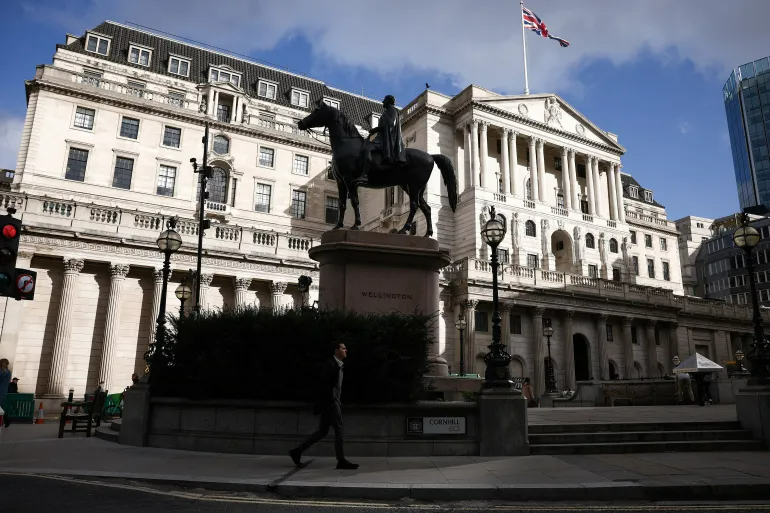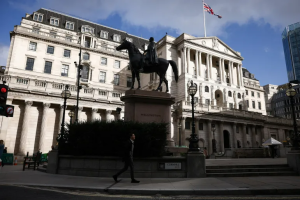Join Our Telegram channel to stay up to date on breaking news coverage
The crypto industry has strongly infiltrated the traditional financial sector to the point where the banks can no longer ignore it. It has now been several years since central banks worldwide have started building CBDCs, while some have even gone as far as offering accounts to crypto companies.
Meanwhile, according to its deputy governor, Sir Jon Cunliffe, the Bank of England has seemingly developed a strong interest in tokenization. The bank’s official spoke during the recent Innovative Finance Global Summit, which took place in London on April 17th. During the event, he addressed the development of tokenization, stating that the UK’s central bank is currently exploring it. According to Cunliffe, the bank is looking into tokenization in bank money, central bank money, and even non-bank money.
The @bankofengland's Jon Cunliffe outlines 4 areas where tokenisation of money is being explored: #stablecoins for payments, tokenisation of commercial bank deposits, issuance of a digital pound, and ensuring these new forms of money are robust & uniformhttps://t.co/DthyJrtVZ1
— Central Bank Payments News (@cbpaymentsnews) April 17, 2023
The central bank is interested in exploring the ways in which tokenized assets interact. Cunliffe said that stablecoins offer the possibility of great functionality and efficiency in payments. However, he added that “it is extremely unlikely that any of the current offerings would meet the standards for robustness and uniformity we currently apply both to commercial bank money and to the existing payment systems.”
Major banks are switching to crypto
Moving forward, the central bank intends to collaborate with the UK’s financial watchdog, the Financial Conduct Authority (FCA) in order to develop appropriate regulation, following the passage of the Financial Services and Markets Bill.
Apart from that, the BoE deputy governor noted that tokenized bank deposits are a much simpler proposition than using non-bank stablecoins. They could even allow banks to compete better with non-bank payment cryptocurrencies. Regulatory issues remain in the way for the moment, such as deposit insurance and AML measures. After all, deposit tokens would settle without involving the central bank’s money, unlike the current commercial bank settlements.
Cunliffe continued by saying that the UK central bank digital currency would likely be needed if the current trends in payments and money, in general, continue. He believes that a digital pound would have an anchoring role to play for the UK economy, similar to what cash does right now.
Not only that, but it would offer a wide range of innovators access to a platform. He expects that there could even be machinery that would ensure wholesale tokenized transactions would settle in central bank money through the use of the digital pound, which would add to the financial stability of the country and its economy.
There could be other advantages, like synchronizing tokenized transactions with the real-time payment system of the British central bank. This could be achieved with upgrades that are underway right now. Ultimately, this is a move that most countries’ central banks will eventually have to make and improve their technology in one way or the other. That much became clear when the US Fed recently announced the creation of a new, instant payment system called FedNow.
Is FedNow the first step to a retail CBDC in the US? pic.twitter.com/Va1COKSUzi
— Molly Elmore (@mollyelmore22) April 8, 2023
Related
- Bank of England Hiring For a CBDC- Will it replace the Pound?
- Deputy Bank of England Governor Says Digital Pound Might Be Necessary
- Bank of England seeks $420M funding to regulate crypto
Best Wallet - Diversify Your Crypto Portfolio
- Easy to Use, Feature-Driven Crypto Wallet
- Get Early Access to Upcoming Token ICOs
- Multi-Chain, Multi-Wallet, Non-Custodial
- Now On App Store, Google Play
- Stake To Earn Native Token $BEST
- 250,000+ Monthly Active Users
Join Our Telegram channel to stay up to date on breaking news coverage


